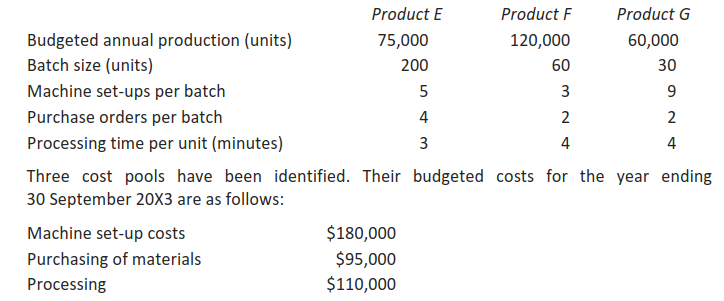快速查题-ACCA英国注册会计师试题
- 不限题型
- 不定项选择题
- 单选题
- 填空题
- 材料题
- 简答题
- 论述题
The following statements have been made about Activity-Based Budgeting (ABB):
(1) The costs determined using ABC are used as a basis for preparing budgets.
(2) The aim of ABB is to control the number of units output rather than the costs themselves.
Which of the above statement(s) is/are true?
The following statements have been made about budgetary systems in the performance hierarchy:
(1) Developing new products in response the changes in technology is a budgeting activity that would fall within operational planning and control.
(2) Budgetary systems at strategic planning levels look at the business as a whole and define resource requirements.
Which of the above statement(s) is/are true?
The following statements have been made about feed-forward control budgetary systems:
(1) Feedforward control systems have an advantage over other types of control in that it establishes how effective planning was.
(2) Feedforward control occurs while an activity is in progress.
Which of the above statement(s) is/are true?
An incremental budgeting system is:
EFG uses an Activity Based Budgeting system. It manufactures three products, budgeted details of which are set out below:
 What is the budgeted machine set-up cost per unit of product F?
What is the budgeted machine set-up cost per unit of product F?
The following statements have been made regarding different types of budget:
(i) A flexible budget can be used to control operational efficiency.
(ii) Incremental budgeting can be defined as a system of budgetary planning and control that measures the additional costs that are incurred when there are unplanned extra units of activity.
(iii) Rolling budgets review and, if necessary, revise the budget for the next quarter to ensure that budgets remain relevant for the remainder of the accounting period.
Which of the above statement(s) are true?
X Co uses rolling budgeting, updating its budgets on a quarterly basis. After carrying out the last quarter’s update to the cash budget, it projected a forecast cash deficit of $400,000 at the end of the year. Consequently, the planned purchase of new capital equipment has been postponed.
Which of the following types of control is the sales manager’s actions an example of?
Which of the following statements regarding zero based budgeting are correct?
(1) It is best applied to support expenses rather than to direct costs.
(2) It can link strategic goals to specific functional areas.
(3) It carries forward inefficiencies from previous budget periods.
(4) It is consistent with a top-down budgeting approach.
The following statements have been made about the drawbacks of activity-based budgeting:
(1) It is not always useful or applicable, as in the short term many overhead costs are not controllable and do not vary directly with changes in the volume of activity for the cost driver.
(2) ABB will not be able to provide useful information for a total quality management programme (TQM).
Which of the above statement(s) is/are true?
Incremental budgeting is widely used and is a particularly efficient form of budgeting.
